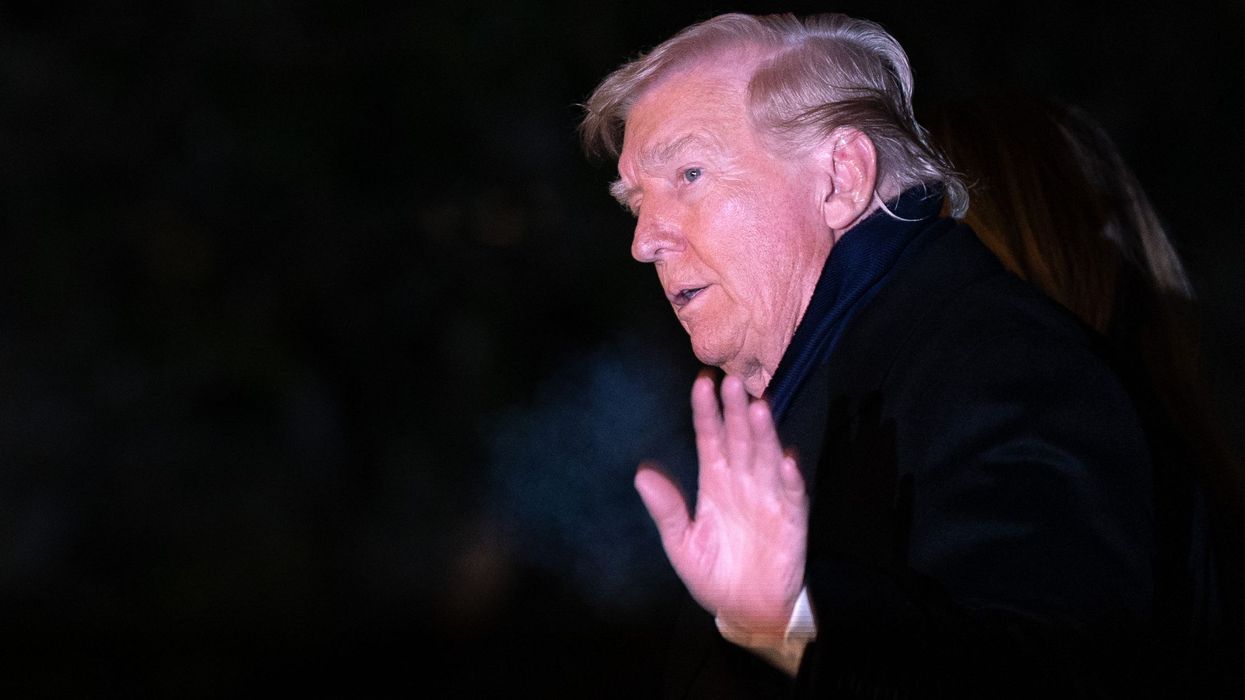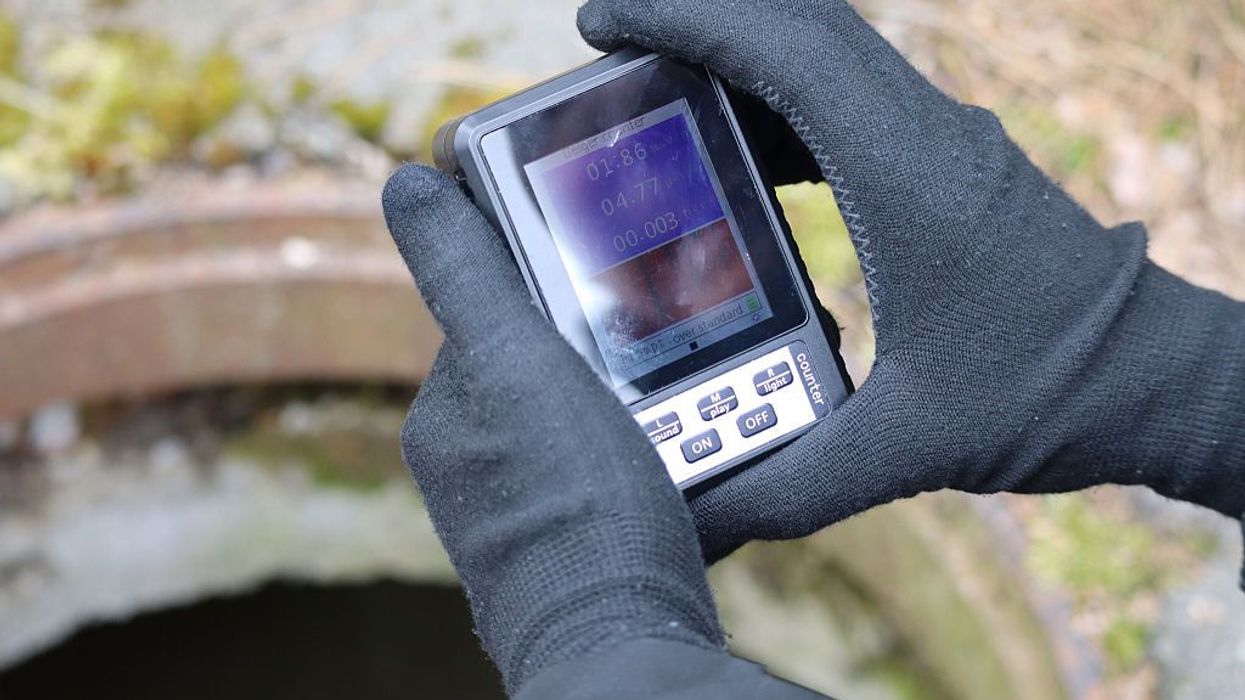July, 24 2013, 11:37am EDT

Will U.S. Face Trade Sanctions as Deadline Passes for U.S. to Alter Law Curbing Teen Smoking, Ruled Against by World Trade Organization?
As Consumer Groups Praise Administration for Not Weakening the Law, Final Decision on Administration’s Anti-Smoking Policy Could Shift Back to WTO
WASHINGTON
As the World Trade Organization (WTO) deadline passes today for the United States to comply with a WTO ruling against a U.S. ban on sweet-flavored cigarettes targeting youth, the spotlight shifts back to the WTO, which now could authorize trade sanctions if requested by Indonesia, the country that won the WTO challenge.
"We now have to wait and see whether the World Trade Organization will slam us with trade sanctions because the United States wants to maintain a policy to keep tobacco companies away from our children," said Lori Wallach, director of Public Citizen's Global Trade Watch. "After last year's rulings against U.S. dolphin protections and popular consumer labels letting Americans know where their food comes, will the WTO depart from its anti-consumer legacy or choose to punish the United States for a commonsense public health law?"
On Tuesday, the Food and Drug Administration (FDA) requestedpublic comment on an issue related to the WTO ruling: the health implications of menthol cigarettes. The Obama administration stated that the FDA's action constitutes compliance with a 2012 World Trade Organization order to alter a key component of the Obama administration's landmark Family Smoking Prevention and Tobacco Control Act of 2009 (FSPTCA).
That law bans sweet-flavored cigarettes that entice youth to smoke. It shut down the sales of chocolate, strawberry and other sweet-flavored cigarettes sold only by U.S. firms as well as the sale of clove-flavored cigarettes that both U.S. and foreign tobacco companies were marketing. The WTO's April 2012 final ruling against the FSPTCA concluded that the United States could ban sweet-flavored cigarettes marketed to youth only if it banned all flavored cigarettes, including menthols. The FDA will receive comments for 60 days on potential regulation of menthol cigarettes, after which the administration will decide what, if any, action will be taken.
It remains to be seen whether Indonesia will accept the FDA announcement or appeal to the WTO to enact trade sanctions against the United States. Indonesia convinced the WTO that the ban on its U.S. sale of clove-flavored cigarettes violated WTO anti-discrimination rules. U.S. consumer and health groups were outraged by the ruling, which effectively forbade incremental policies designed to target anti-smoking efforts at key populations - in this case, children.
The WTO's April 2012 ruling against the anti-smoking FSPTCA law was soon followed by WTO rulings against two other popular U.S. consumer policies. In May 2012, the WTO ruled against voluntary "dolphin-safe" tuna labels that, by allowing consumers to choose to buy tuna caught without dolphin-killing fishing practices, have helped to dramatically reduce dolphin deaths. In June 2012, the WTO ruled against the popular U.S. country-of-origin labeling (COOL) meat labeling program that informs U.S. consumers where their meat comes from and assists regulators in tracking food-borne illness outbreaks.
The administration recently announced solutions to both cases that strengthen rather than weaken consumer and environmental safeguards. Mexico and Canada have threatened to challenge the new U.S. meat labeling policy at the WTO, which would issue a final decision about whether the new labels meet WTO rules. Mexico has also vowed to challenge the enhanced dolphin-safe labeling program, which would place that policy before the WTO as well. If the WTO does not rule that the strengthened U.S. safeguards satisfy WTO requirements, Mexico and Canada could impose trade sanctions against the United States unless and until the U.S. policies are changed to the satisfaction of the WTO.
Public Citizen is a nonprofit consumer advocacy organization that champions the public interest in the halls of power. We defend democracy, resist corporate power and work to ensure that government works for the people - not for big corporations. Founded in 1971, we now have 500,000 members and supporters throughout the country.
(202) 588-1000LATEST NEWS
Records Shows That Trump, By His Own Definition, Is Guilty of Mortgage Fraud
“Given Trump’s position on situations like this, he’s going to either need to fire himself or refer himself to the Department of Justice,” said one mortgage law expert.
Dec 08, 2025
As US President Donald Trump targets political opponents with dubious allegations of mortgage fraud, an investigation published Monday revealed the Republican leader once did the same thing as a senior official he is trying to fire.
In an August letter, Trump announced his termination of Federal Reserve Gov. Lisa Cook—an appointee of former President Joe Biden—for alleged fraud, accusing her of signing two primary residence mortgages within weeks of each other.
Cook, who denies any wrongdoing, has not been charged with any crime and has filed a lawsuit challenging Trump's attempt to fire her. In October, the US Supreme Court declined to immediately remove Cook and agreed to hear oral arguments on the case in January.
Trump called Cook's actions "deceitful and potentially criminal." However, ProPublica reviewed records showing that Trump "did the very thing he’s accusing his enemies of."
Trump committed mortgage fraud, according to Trump.Somehow I doubt his DOJ will go after him the way he instructed his DOJ to go after his political enemies over this.Every Republican accusation is a confession.
[image or embed]
— Melanie D’Arrigo (@darrigomelanie.bsky.social) December 8, 2025 at 5:47 AM
According to the publication:
In 1993, Trump signed a mortgage for a “Bermuda style” home in Palm Beach, Florida, pledging that it would be his principal residence. Just seven weeks later, he got another mortgage for a seven-bedroom, marble-floored neighboring property, attesting that it too would be his principal residence.
In reality, Trump, then a New Yorker, does not appear to have ever lived in either home, let alone used them as a principal residence. Instead, the two houses, which are next to his historic Mar-a-Lago estate, were used as investment properties and rented out, according to contemporaneous news accounts and an interview with his longtime real estate agent—exactly the sort of scenario his administration has pointed to as evidence of fraud...
Mortgage law experts who reviewed the records for ProPublica were struck by the irony of Trump’s dual mortgages. They said claiming primary residences on different mortgages at the same time, as Trump did, is often legal and rarely prosecuted. But Trump’s two loans, they said, exceed the low bar the Trump administration itself has set for mortgage fraud.
"Given Trump’s position on situations like this, he’s going to either need to fire himself or refer himself to the Department of Justice,” Kathleen Engel, a Suffolk University law professor and leading expert on mortgage finance, told ProPublica. “Trump has deemed that this type of misrepresentation is sufficient to preclude someone from serving the country.”
Lisa Gilbert, co-president of the consumer advocacy group Public Citizen, responded to ProPublica's analysis in a statement slamming "Trump's mortgage fraud witch hunt."
"The cruel and lawless hypocrisy of Donald Trump using the levers of government to dig up so-called mortgage fraud on his perceived political opponents, while doing the very same, is blatant," Gilbert said in a statement.
A federal judge recently dismissed the US Department of Justice's (DOJ) criminal case against Democratic New York Attorney General Letitia James, who was charged with bank fraud and false statements regarding a property in Virginia. Critics called the charges against James—who successfully prosecuted Trump for financial crimes—baseless and politically motivated. A federal grand jury subsequently rejected another administration attempt to indict James.
“The administration has used the idea of claiming a home as your primary residence without residing there to justify DOJ takedowns of Lisa Cook, Tish James, and more," Gilbert added. "If this is how they really feel, and the ProPublica reporting is accurate, then Donald Trump should be next in the DOJ crosshairs.”
ProPublica said that Trump hung up on one of its reporters who asked about similarities between his Florida mortgages and those of people targeted by his administration.
“President Trump’s two mortgages you are referencing are from the same lender," a White House spokesperson subsequently told the outlet. "There was no defraudation. It is illogical to believe that the same lender would agree to defraud itself.”
“President Trump has never, or will ever, break the law," the spokesperson falsely added.
Trump has accused other political foes, including US Sen. Adam Schiff and Rep. Eric Swalwell—both California Democrats who played key roles in both of the president's House impeachments—of similar fraud. Swalwell is currently under formal criminal investigation. Both lawmakers deny the allegations.
Keep ReadingShow Less
New Worries at Chernobyl After IAEA Finds Radiation Shield Has 'Lost Primary Safety Functions'
"Timely and comprehensive restoration remains essential to prevent further degradation and ensure long-term nuclear safety," said IAEA director general Rafael Mariano Grossi.
Dec 08, 2025
A protective shield built over the remains of the Chernobyl nuclear power plant in Ukraine is no longer capable of blocking radiation, the International Atomic Energy Agency warned late last week.
In a statement published on Friday, the IAEA said that its researchers have confirmed that the New Safe Confinement (NSC) shield has "lost its primary safety functions," including the ability to confine radiation, after it was damaged by a Russian drone strike in February.
On the positive side, the researchers found "no permanent damage" to the system's load-bearing structures and monitoring systems. Nonetheless, IAEA director general Rafael Mariano Grossi said that urgent work needed to be done to rebuild the shield.
"Limited temporary repairs have been carried out on the roof, but timely and comprehensive restoration remains essential to prevent further degradation and ensure long-term nuclear safety," he emphasized.
Grossi noted that IAEA had a permanent team working at the site and vowed that the agency "will continue to do everything it can to support efforts to fully restore nuclear safety and security at the Chernobyl site."
Shaun Burnie, a senior nuclear specialist at Greenpeace, told the New York Times that the damage caused to the NSC isn't cause for immediate concern, although that would change if the damage to the shield went without repairs for a long period of time.
"If there was to be some event inside the shelter that would release radioactive materials into the space inside the New Safe Confinement, because this facility is no longer sealed to the outside environment, there’s the potential for radiation to come out," said Burnie. "I have to say I don’t think that’s a particularly serious issue at the moment, because they’re not actively decommissioning the actual sarcophagus."
The NSC was first put into place in 2016 to enclose the emergency sarcophagus over Chernobyl's number 4 nuclear reactor that was constructed by Soviet officials in the wake of the 1986 disaster at the nuclear plant.
Keep ReadingShow Less
230+ Environmental Groups Call On Congress to Impose Moratorium on New AI Data Centers
“The rapid, largely unregulated rise of data centers to fuel the AI and crypto frenzy is disrupting communities across the country and threatening Americans’ economic, environmental, climate, and water security.”
Dec 08, 2025
Environmental and economic justice advocates alike have been sounding the alarm for months regarding the Trump administration's push to built massive data centers to support artificial intelligence and cryptocurrency in communities across the United States—regardless of local opposition—and on Monday Congress heard from a coalition of more than 200 groups demanding action to stop what they called "one of the biggest environmental and social threats of our generation."
Led by Food and Water Watch (FWW), which originally demanded a moratorium on new AI data centers in October, more than 230 organizations have signed a letter warning that thus far, Congress has failed to take action to stop the rapid expansion despite the fact that "the harms of data center growth are increasingly well-established, and they are massive."
The national and state groups, including Greenpeace USA, Oil Change International, and the Nebraska-based Save Rural America, pointed to a number of harms associated with the expansion of data centers in places including rural Michigan, Wisconsin, and northern Virginia.
They warned that pushing the build-out onto communities—many of which have protested the approval of the centers to no avail—will lead to:
- Enormous electricity consumption, with a tripling of data centers in the next five years projected to result in the facilities consuming as much electricity as about 30 million households;
- Unsustainable water consumption, with those data centers requiring the amount of water normally used by 18.5 million households, just for cooling the computer servers;
- The worsening of the climate emergency, with 56% of the energy used to power data centers sourced from planet-heating fossil fuels;
- Surging electricity costs for people living in the vicinity of energy-sucking data centers; and
- Skyrocketing job losses as half of all entry-level white-collar jobs are projected to become obsolete due to the growth of AI and companies' investments in the technology, even as corporations report they're not seeing a significant positive impact on their bottom lines.
"The rapid, largely unregulated rise of data centers to fuel the AI and crypto frenzy is disrupting communities across the country and threatening Americans’ economic, environmental, climate, and water security," the groups told Congress. "We urge you to join our call for a national moratorium on new data centers until adequate regulations can be enacted to fully protect our communities, our families, our environment, and our health from the runaway damage this industry is already inflicting."
The groups noted that electricity costs have risen 21.3% since 2021, a rate that "drastically" outpaces inflation, driven by the "rapid build-out of data centers."
As CNBC reported last month, residential utility bills rose 6% in August compared with last summer, and though price increases can be due to a host of reasons, electricity prices rose "much faster than the national average" this year in states with high concentrations of data centers. Consumers in Virginia paid 13% more, while those in Illinois paid 16% more and people in Ohio saw their costs go up 12%.
Emily Wurth, managing director of organizing at FWW, told the Guardian that rising utility costs are driving much of the grassroots action against data centers in places like Wisconsin—where a woman was violently dragged out of a community meeting by police last week after speaking out against plans for a new facility in her town—and Tucson, Arizona, where residents successfully pushed the City Council this year to block a data center project linked to Amazon.
“I’ve been amazed by the groundswell of grassroots, bipartisan opposition to this, in all types of communities across the US,” Wurth told the Guardian. “Everyone is affected by this, the opposition has been across the political spectrum. A lot of people don’t see the benefits coming from AI and feel they will be paying for it with their energy bills and water... We’ve seen outrageous utility price rises across the country and we are going to lean into this. Prices are going up across the board and this is something Americans really do care about.”
Data center projects worth a total of $64 billion have been blocked or delayed in states including Texas, Oregon, and Tennessee, and Reuters reported last week that a sizable portion of the opposition is coming from parts of the country that heavily supported President Donald Trump in last year's election.
Hundreds of people attended a recent meeting in Montour County, Pennsylvania, where Trump won by 20 points last year, raising alarm over plans to rezone 1,300 acres for Talen Energy to build a data center.
While raising prices for households that are already coping with high grocery and healthcare bills, the unregulated growth in AI data centers is also expected to add up to 44 million tons of carbon dioxide to the atmosphere in just the next five years—the equivalent of putting 10 million new fossil fuel-powered cars on the road at a time when planetary heating has already been linked to recent US weather disasters like Hurricane Helene and deadly heatwaves.
The groups appealed to Congress as Trump said he plans to sign an executive order preempting state-level AI regulations, saying that states, "many of them bad actors," should not be "involved in RULES and the APPROVAL PROCESS.”
Republicans in Congress have also recently suggested they could try to ban state-level AI regulations in the National Defense Authorization Act.
The Trump administration and its allies in the industry have issued warnings to communities that oppose the construction of AI data centers, with the White House's AI Action Plan demanding the fast-tracking of permits for building the facilities and former Sen. Kyrsten Sinema (I-Ariz.) lobbying for the industry and recently telling local officials in Chandler, Arizona that "federal preemption is coming" and they must approve plans for a 20,000-square foot data center in the city.
A Morning Consult poll taken last month found that public support for the centers is falling as rapidly as companies try to take over rural and suburban communities with new data centers. More than 40% said they supported a ban on the construction of new facilities, up from 37% just a month prior.
Keep ReadingShow Less
Most Popular


